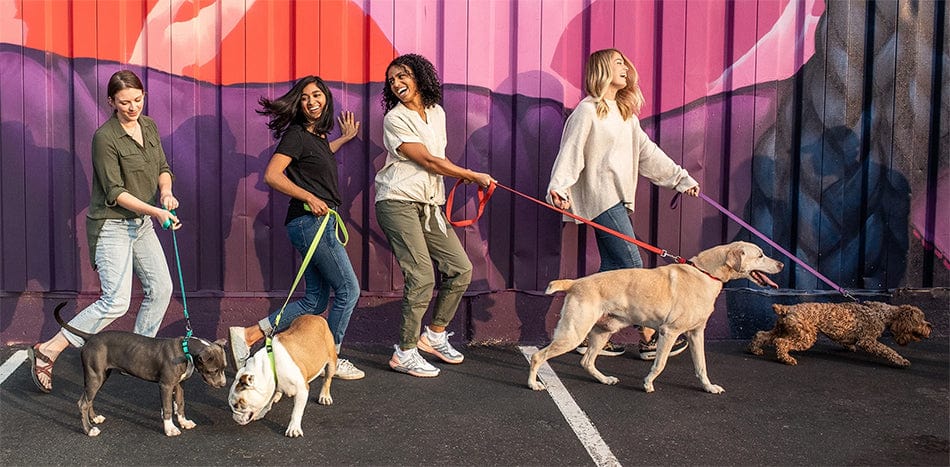Your cart is empty. Let's fix that!


Before you bring home your little furry angel, it’s important to properly set up your home for their arrival. This includes getting the best food for your puppy (and the right amount of it), as well as other necessities listed on this puppy checklist. Since your home is going to be the place where your doggo spends the majority of their time, it’s imperative that you take the necessary time to make sure it’s a safe environment for them. Our guide explains how to puppy proof, both indoors and outdoors.
One of the easiest ways to determine how to puppy proof a house is to crawl around on all fours to literally get on your puppy’s level. Look for things that a puppy could chew on or get tangled in, and tiny spaces they could squeeze through. Here’s a checklist of all the dangerous things your puppy is likely to get into that you need to secure before bringing them home.
Small items they could choke on: Puppies love to chew everything. Put away any choking hazards — like coins, paper clips, magnets, rubber bands, and jewelry.
Electronics and batteries: Anything with batteries (remote controls, key fobs, toys, etc.) should be kept out of reach from your puppy. If they swallow or chew on the batteries it can be incredibly dangerous.
Cleaning supplies: Keep cleaning supplies on high shelves or behind doors with childproof latches. When you're cleaning (especially floors), make sure that your puppy is in another part of your home so they won’t be affected by the chemical vapors.
Poisonous plants: Move toxic houseplants so your pupperoo can’t eat them.
Stairs: Falling down the stairs is a dangerous puppy hazard, so make sure all doors leading to stairways are closed, and block off any other stairs with a pet or baby gate.
Medications: Avoid keeping medications, even in pill bottles, within your dog’s reach (on low tables, bathroom counters, or night tables).
Doors & windows: Always keep windows and doors closed, so your puppy can’t get out of your home. Secure any cords on blinds or curtains, so they won’t get caught around your puppy’s neck.
Sharp objects: Keep all sharp objects (knives, scissors, razors, etc.) out of your dog’s reach to prevent lil’ Fido from swallowing them or cutting themselves with them.
Trash cans: Dogs love nothing more than stinky garbage! Make sure trash can lids are secured. If dogs eat trash, it can upset their tummies and can sometimes be toxic.
Toilets: Keep toilet lids closed, so your puppy won’t try to drink out of the toilet or accidentally fall in.
You should also consider giving your puppy their own “safe space,” like a crate or a fluffy spot on the sofa in the basement to be contained and to retreat to when they need to decompress.
Backyards have a double purpose; they act as your puppy’s bathroom (once they are potty trained, at least) and playground. This area needs to be safe for them, too! All the tips below should be considered to ensure a safe environment for your pup.
Install fencing: The safest yards have fences. If possible, make sure yours is high enough that your puppy can’t jump over it, or crawl through any holes.
Remove toxic plants: Familiarize yourself with the type of plants that are toxic to dogs and get rid of any that may be growing in your yard.
Gate pool areas: As is true with toddlers, pools are a big hazard for puppies. A fence surrounding the pool will prevent your puppy from accidentally falling in.
Keep the lawn manicured: Ticks and other harmful critters are more likely to hide in tall grasses.
Steer clear of chemicals: Keep your puppy inside if the yard has recently been treated with fertilizers, pesticides, or insecticides.
Regulate their temperature: Avoid leaving your dog outside for too long in extreme weather and always provide them with shade when it’s hot, and protective layers when it’s cold. Keep them hydrated at all times.
Remove the poo: Clean up after your puppy to keep your yard looking fresh and prevent your four-legged from trying to eat their own feces.
Keep an eye out: Puppies should never be left outside alone. They are very vulnerable and it’s up to you to keep them safe.
If puppies seem like a lot of work, it’s because they are, but they are completely worth it. Enjoy this time with your fur baby!